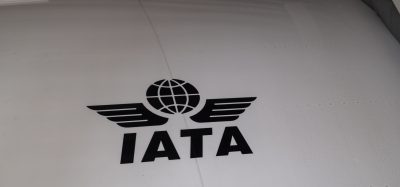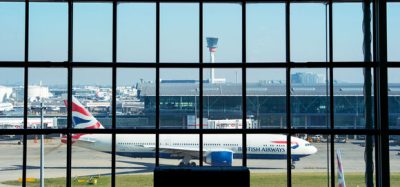Aviation Fuels – Looking to the future
- Like
- Digg
- Del
- Tumblr
- VKontakte
- Buffer
- Love This
- Odnoklassniki
- Meneame
- Blogger
- Amazon
- Yahoo Mail
- Gmail
- AOL
- Newsvine
- HackerNews
- Evernote
- MySpace
- Mail.ru
- Viadeo
- Line
- Comments
- Yummly
- SMS
- Viber
- Telegram
- Subscribe
- Skype
- Facebook Messenger
- Kakao
- LiveJournal
- Yammer
- Edgar
- Fintel
- Mix
- Instapaper
- Copy Link
Posted: 31 July 2007 | Jeff Poole, Director Industry Charges, Fuel and Taxation, International Air Transport Association (IATA) | No comments yet
Jeff Poole, Director Industry Charges, Fuel and Taxation, answers our questions on the future of aviation fuels from an IATA perspective.
Jeff Poole, Director Industry Charges, Fuel and Taxation, answers our questions on the future of aviation fuels from an IATA perspective.
Q: What do you feel is needed to secure the jet fuel supply chain?
There are two fundamental issues there. One is the actual market availability of jet fuel. The second is the supply of jet fuel to specific locations and the reliability of that supply. With availability, we are clearly experiencing pressures as a result of what’s happening in the oil market generally and how that affects the proportion of output that the refiners are prepared to allocate to jet fuel, rather than other middle distillates. So this is a production supply dynamic and there are predictions of constraints on refining capacity. We would always want more refining capacity, to ensure supply and reduce costs. Obviously as we move forward, the availability of alternate fuels and bio-fuels becomes helpful not only environmentally, but also in terms of the available capacity and the second issue I mentioned, the reliability of supply. We are always looking to ensure that the infrastructure, whether that’s shipping routes, pipelines, or fuel farms at airports, has the right supply capacity and the right storage facilities. That way if there are temporary disruptions in supply then there is adequate storage at airports to ensure that our operations can continue unaffected.
Q: Can you update us on expanding activities to create new jet fuel infrastructure at strategic locations?
This is very much an issue for the airport, the airlines operating locally and the fuel suppliers rather than a global issue. What we want to see at each location is a very close understanding of the present day requirements and future growth so that the right infrastructure and the right capacity at the right price are put in place.
Q: What is currently being done to ensure even better safety standards and quality levels for jet fuel?
We have a number of issues there that are being dealt with through the IATA Fuel Quality Pool (IFQP). We have close cooperation with oil companies to improve the handling of fuel and share high quality fuel safety and quality audits. We try to ensure that, as with our IOSA scheme for the airlines, quality audits are carried out once, rather than having lots of repetitive and duplicative audits. In 2008 we expect to launch an enhanced global handling standard that will replace all of the current quality and safety standards.
Q: What are the challenges of operating a seamless supply chain from refinery to aircraft?
The real challenges tend to be political interference, or non-interference. Both can be a problem. The optimum infrastructure developments are often blocked for political reasons e.g. a new pipeline is blocked by government inaction and/or objections from the road transport industry or the shipping industry. So really, the first challenge is to ensure that the technical, operational and capacity requirements are fully understood and agreed. That should not really be a problem – it is day to day stuff and only requires co-operation to ensure optimum solutions. Getting it done politically and in a number of cases now on a trans-national basis, is where the real challenge lies.
Q: Are there any current studies being conducted into future fuels i.e. Synthetic and hydrogen based fuels?
IATA has an alternative fuels project where we are working closely with the fuel companies, our airlines and other technical companies. We have a real requirement and drive to ensure that alternative fuels are available as quickly as possible. This is closely linked with a Commercial Aviation Alternative Fuel Initiative and also with the United States Air Force initiative to rapidly develop enough synthetic fuels so that they become independent of imported crude supply. Next to that, studies have started to develop aircraft and engines that are capable of running on hydrogen, fuel cells, bio fuels and so on. Although that is a longer term issue, we really want to ensure from an IATA and airline perspective that by 2020 we have a new technology that provides 50% reduction in fuel-burn compared to that of 2000. Around 15-20% of fuel savings would come from new engines and a similar amount from new aircraft designs, with weight savings and improved aerodynamics. The remaining 10-15% would come from more efficient operations, both by the airlines themselves and in terms of air traffic management. This is all part of our strategy and vision, to achieve zero emissions in the next 50 years.
Q: What role do you feel airport authorities should play in determining reasonable inventory requirements to minimise fuel problems, shortages, or even complete outages?
The relationship that an airport authority has, in terms of fuel supply, varies from place to place – from direct responsibility to almost no responsibility at all, other than an interest in ensuring that fuel is available. Generally I would repeat what I said earlier, that the airport authorities should ensure that there is a reliable fuel supply based on existing traffic and an agreed view of likely growth. Importantly though, it is essential that the fuel supply is provided on a competitive basis, so that as an industry we are not suffering from monopoly suppliers. This can mean suppliers either in terms of just a single fuel company, local or international, or it can be through single ownership and control of a fuel farm at an airport. To sum up, we need to ensure that adequate fuel is available, that there’s plenty of storage there so that short term perturbations are not a problem and to make sure that costs are kept low by having a competitive supply.
Q: The FAA has been running unleaded fuel programmes; could this be the best alternative fuel option to date?
The unleaded fuel side of things only applies really to the ground vehicles. The fuels that are being looked at are not really fit-for-purpose for the aviation side, due to unstable properties and the fact that they are not able to meet the fuel specifications. That is why we are looking very strongly at alternative fuels, rather than unleaded.
Q: Further to our ongoing work with the IATA fuel meetings, can you update us on the next session?
As you know, we focus on a number of different issues at the IATA fuel forums, from bringing people up to date with what’s happening, to educating them on various issues. Most importantly we discuss what the next steps are in the industry to make us more efficient or have fuels available. In that context, the next IATA Aviation Fuel Forum in Istanbul will continue the discussions that we’ve had at the last couple of meetings on the environment – from pure environmental issues such as emissions trading and how that might be implemented and best adopted in the airline industry, where are we on alternative fuels and how can we work better together to get alternative fuels earlier. We will of course be looking at the traditional subjects also, which are around the cost of fuel (both fuel prices and the cost of supply) and around the reliability of supply, for example, progress on the IATA initiative on reliability of fuel supply in Africa.
Jeff Poole
Jeff Poole, IATA Director Industry Charges, Fuel and Taxation is responsible for achieving significant cost reductions in airport costs and air navigation charges of $42 billion a year to IATA Member airlines for their international operations (about 10% of the global operational costs of all airlines). He is also responsible for IATA’s commercial fuel activities, including fuel charges, reliability of fuel supply and for industry taxation matters affecting IATA Member airlines.
Jeff joined IATA in February 2004 following a career at Airbus, Toulouse and in the defence industry with BAE SYSTEMS. His last position at Airbus was as Senior Vice President for Procurement Strategy and Services, covering a $20 billion per annum spend. Prior to that, Jeff was responsible for development of all business aspects of the Airbus A3XX (now A380) programme. His previous positions in the defence industry covered commercial, contractual, business development and strategy aspects of a number of major defence programmes and businesses in the UK and internationally. He also has extensive experience of working with Governments and major international institutions.

















